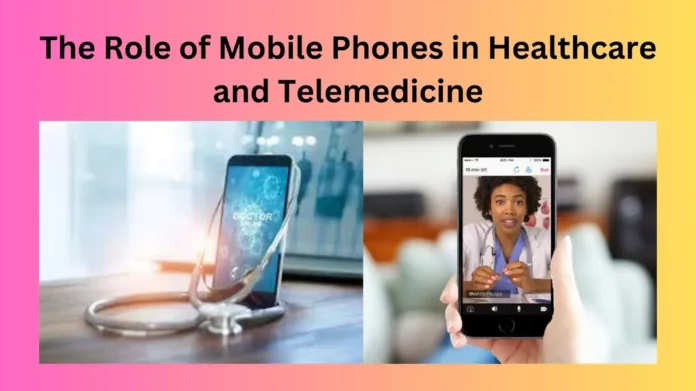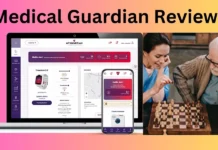In today’s fast-paced world, mobile phones have become an integral part of our daily lives. These pocket-sized devices have evolved beyond communication tools, transforming the healthcare industry in profound ways.
The convergence of technology and healthcare has given rise to telemedicine, a practice that leverages mobile phones to provide medical services remotely. In this article, we’ll explore the multifaceted role of mobile phones in healthcare and telemedicine, shedding light on their impact, benefits, and future potential.
The Mobile Health Revolution
Mobile phones have ushered in a revolution in healthcare, bringing medical information and services directly to our fingertips. With the advent of smartphones, individuals can easily access health-related apps, track their fitness, and even monitor chronic conditions. These mobile health (mHealth) applications empower users to take control of their well-being.
Telemedicine: Bridging the Gap
Telemedicine, a branch of healthcare that utilizes telecommunication technology, has gained immense popularity thanks to mobile phones. It enables patients to consult with healthcare professionals remotely, breaking down geographical barriers. Mobile apps and platforms allow patients to schedule virtual appointments, receive prescriptions, and access medical advice, saving time and reducing the need for physical visits.
Enhancing Access to Medical Information
The internet and mobile phones have democratized access to medical information. Patients can now research symptoms, treatments, and medications easily. Mobile apps offer comprehensive databases of medical knowledge, helping users make informed decisions about their health. This readily accessible information fosters a sense of empowerment and reduces unnecessary visits to healthcare facilities.
Monitoring and Managing Health
Mobile phones have become indispensable tools for monitoring and managing health conditions. Wearable devices paired with mobile apps can track vital signs, such as heart rate, blood pressure, and glucose levels. Patients with chronic illnesses can share real-time data with their healthcare providers, leading to more personalized and effective treatment plans.
Breaking Down Geographic Barriers
One of the most significant advantages of mobile phones in healthcare is their ability to transcend geographical limitations. Rural and underserved areas now have access to quality medical care through telemedicine. Patients who previously had to travel long distances for consultations can now receive medical advice from the comfort of their homes.
Timely Medical Assistance
In emergencies, mobile phones can be a lifeline. Patients can quickly reach out to medical professionals or contact emergency services with the touch of a button. Location-based services on mobile devices enable first responders to locate individuals in distress, reducing response times and potentially saving lives.
Promoting Preventive Healthcare
Mobile phones are not just tools for addressing existing health issues; they also play a crucial role in preventive healthcare. Health and fitness apps encourage users to maintain an active lifestyle, monitor their diet, and set fitness goals. This proactive approach to health can prevent the onset of chronic diseases and improve overall well-being.
Privacy and Security Concerns
While mobile phones offer numerous benefits in healthcare, they also raise concerns about data privacy and security. Patients’ personal health information must be safeguarded against unauthorized access and breaches. Healthcare providers and app developers must adhere to strict security protocols and compliance with data protection laws.
Future Innovations
The integration of mobile technology and healthcare is an ever-evolving field. The future promises even more innovative applications, such as artificial intelligence-driven diagnostics, remote surgical procedures, and advanced telehealth platforms. Mobile phones are poised to become indispensable tools in the healthcare ecosystem.
Conclusion
Mobile phones have revolutionized healthcare by making medical information, services, and consultations readily accessible. The advent of telemedicine, coupled with mHealth applications, has transformed the way we approach healthcare. As technology continues to advance, mobile phones will play an increasingly central role in promoting health and well-being.
Unique FAQs
1. How secure is my personal health information when using mobile health apps?
- Mobile health apps must adhere to strict security protocols to protect your data. It’s essential to choose reputable apps and healthcare providers with robust privacy measures in place.
2. Can I trust the accuracy of health-related apps and wearable devices?
- The accuracy of health apps and wearables can vary. It’s advisable to consult with healthcare professionals for serious medical concerns and use these tools as supplementary sources of information.
3. What is the difference between telemedicine and traditional in-person healthcare?
- Telemedicine involves remote consultations with healthcare professionals using technology, while traditional healthcare requires in-person visits to a medical facility. Telemedicine offers convenience and accessibility.
4. How can I maintain my privacy when using mobile phones for healthcare purposes?
- Protect your privacy by using strong passwords, enabling two-factor authentication, and ensuring that the healthcare apps you use comply with data protection laws, such as HIPAA (in the United States).
5. What are some upcoming innovations in mobile healthcare technology?
- The future of mobile healthcare technology holds exciting possibilities, including AI-powered diagnostics, remote surgical procedures, and more advanced telehealth platforms that offer comprehensive medical services virtually.















